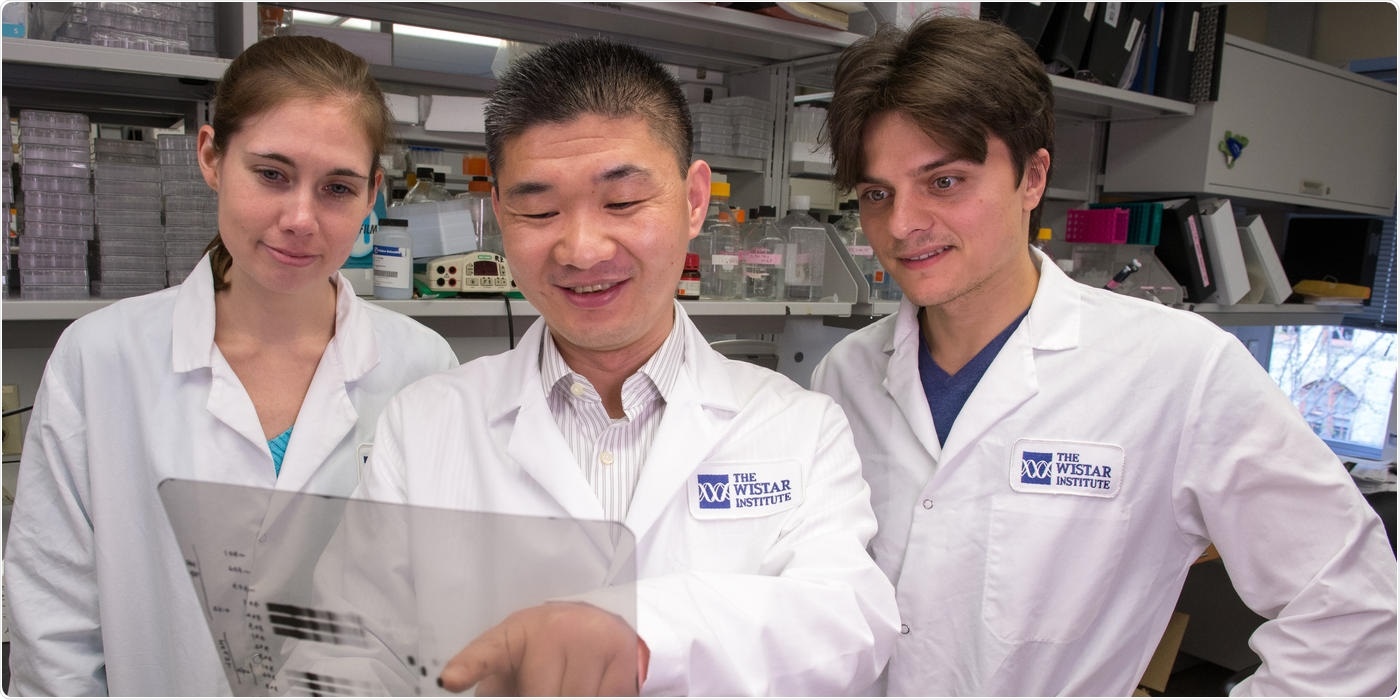Immunotherapies are exhibiting better clinical benefit in the treatment of numerous cancers, particularly when used along with chemotherapy. But certain cancers respond badly to immunotherapy—ovarian cancer being the most resistant.

Image Credit: Wistar Institute.
Recent research by investigators at The Wistar Institute, a biomedical research leader in immunology, cancer, infectious disease, and vaccine development pinpointed two genes that perform a vital role in safeguarding ovarian cancer from the immune system.
The observations can be a great leap in generating new treatments intended to make ovarian cancer and other kinds of cancer, more susceptible to immunotherapy. The results were published in Cancer Immunology Research, a journal of the American Association for Cancer Research.
Ovarian cancer has a relatively poor response to immunotherapy compared to other types of cancer, like melanoma and non-small cell lung cancer. However, we still want to take advantage of immunotherapy, so in order to do that, we have to identify a new strategy.”
Rugang Zhang PhD, Deputy Director, Cancer Center, Wistar Institute
Rugang Zhang is also the Christopher M. Davis Endowed Professor and program leader in the Immunology, Microenvironment & Metastasis Program, at The Wistar Institute.
The scientists utilized CRISPR screening for the research. It is a tool that enables researchers to scan through a huge group of genes and ascertain the genes that perform a specific function. In a screen of genes collected from mouse ovarian cancer cells, the researchers pinpointed genes encoding a complex named SETDB1-TRIM28 performing a key role in suppressing the immune system.
The researchers reviewed genetic data from human ovarian cancer patients and discovered that those genes were negatively correlated with immune profiles. This indicates that patients who had more of these genes were inclined to respond badly to immunotherapy.
Remarkably, the complex found in the research was over-expressed in different kinds of cancers, particularly ovarian cancer—where the complex was common in up to 25% of patients. The observations can lead to the creation of novel treatments that target the complex and enhance the efficiency of immunotherapies against resistant cancers, including ovarian cancer.
First author Jianhuang Lin, Ph.D., a postdoctoral fellow in the Zhang Laboratory, remarked that drugs already exist that widely target the type of enzyme that interacts with the immune-suppressing complex. These drugs can be modified to particularly target SETDB1-TRIM28.
There are a number of histone methyltransferase inhibitors in development, however, none are currently being advanced against this particular target. Because our discovery is brand new, it holds promise for creating new combination immunotherapies for ovarian cancer.”
Jianhuang Lin, Study First Author and Postdoctoral Fellow, Wistar Institute
Besides ovarian cancer, new treatments would benefit patients with other cancers where these genes are over-expressed.
The Zhang laboratory intends to investigate the means to target this recently identified complex to enhance anti-tumor immunity.
Source:
Journal reference:
Lin, J., et al. (2021) The SETDB1–TRIM28 Complex Suppresses Antitumor Immunity. Cancer Immunology Research. doi.org/10.1158/2326-6066.CIR-21-0754.